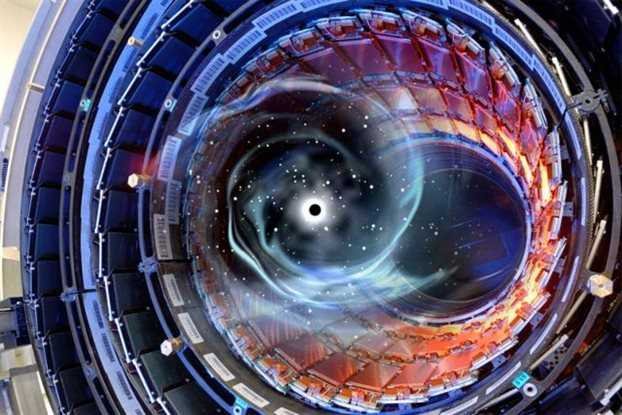It all started when it became known that the construction of the Large Hadron Collider (LHC) at CERN was starting. Among the great expectations and hopes of the scientific community for the operation of the accelerator were some individual voices that expressed concern. Some experts have suggested that "black holes" could theoretically be created by violent particle collisions within such accelerators. Their colleagues' answer was that, even in the (unlikely) event that this happens, the "black holes" that would be created would be tiny, their lifespan would be a few milliseconds and they would disappear before they could swallow the planet.

The recipe"
"Black holes" are usually created when a massive but aged star collapses at its own weight. What is left is a point in the space where the density of matter is infinite. And this superconcentration of matter creates a gravitational field so powerful that nothing, even light, can escape its deadly attraction.
With base Einstein's theory of mass equivalence and energy, a "black hole" could theoretically be created in the laboratory using not mass but energy. This could happen during the collision of particles that have negligible weight but move at high speed and therefore have high kinetic energy. Newer studies have shown that the energy required to give birth to so-called mini black holes is less than originally estimated. But it remains not only high but unapproachable for the data of the LHC or any other of the existing accelerators
The "strange" threat
The announcement by the staff of the Realistic Heavy Ion Collider at Brookhaven National Laboratory on USA that they will make a major upgrade to it provoked the reaction of the famous British astronomer Martin Rees, who brought the catastrophic scenarios back to the fore. Rees argues that upgrading the accelerator and conducting experiments with it are likely to create mini "black holes" and "exotic" subatomic particles such as the "strangelet". It is a hypothetical tiny particle of "strange matter" which contains almost an equal number of different types of quark. The particle has received the Greek name paradoxical. According to Rees, the creation of paradoxes is likely to turn the Earth into an inert super-dense sphere just 100 meters in diameter. Other adherents of the same theory argue that paradoxes will not make the Earth a super-dense sphere but will turn everything on it into some "strange" kind of matter, with the end result of the destruction of our planet. Even if we accept that the paradox can eventually destroy the Earth, the. Paradox is that those who predicted such a thing will not be able to be justified after they have been "swallowed" by their prophecy.
Posted in HELIOS PLUS on 24 February 2014





